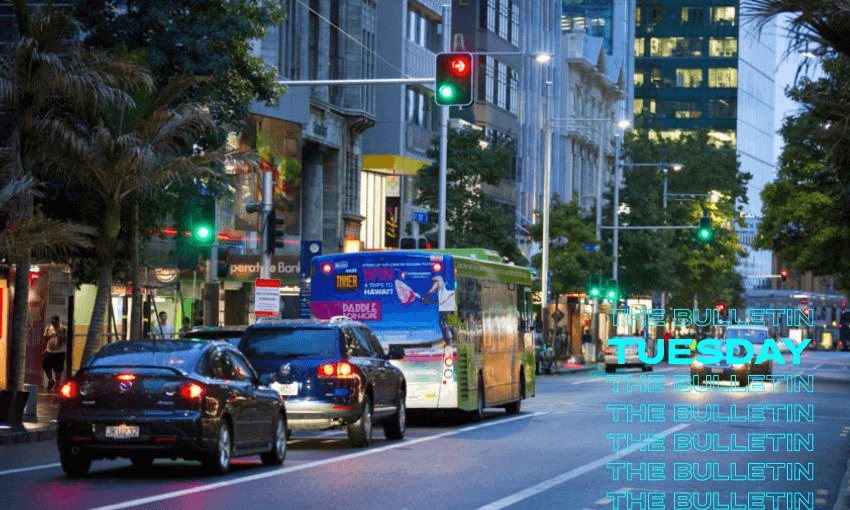Beehive unveils package to cut transport bills as New Zealanders face soaring cost of living, Justin Giovannetti writes in The Bulletin.
Fuel taxes will be cut by 25 cents a litre for three months.
A “global energy crisis” unleashed by Russia’s invasion of Ukraine has meant New Zealand’s petrol prices have increased by the highest amount on record, the prime minister said yesterday. To help motorists adjust to the volatile situation, the government is cutting the fuel excise duty and road user charges for three months. The cut happened overnight. As The Spinoff’s live updates reports, the changes to the fuel tax will lead to a potential saving of between $11.50 to $17.25 per tank of petrol. That should bring prices back to where they were three weeks ago. The three month cut will cost the Treasury a whopping $350 million and could be extended if the price situation doesn’t improve.
“While forecasters predict inflation will peak and subside over the coming year, there is less certainty around fuel costs due to the volatility of Russia’s invasion of Ukraine,” Jacinda Ardern said at parliament.
Public transit fares will also be halved to give commuter more options.
Unlike the cut to fuel taxes, it’ll take the government some time to negotiate how to cut fares as local authorities are responsible for public transit. The central government will reimburse transit operators for the lower revenues coming into fare boxes. The finance minister told RNZ that he expects councils will welcome the news and work to push it through. The programme is expected to cost between $25 to $40 million for three months. It could be an interesting case study in whether lower fares drive usage. According to Google’s mobility data on Aotearoa, much of the country is close to normal compared to pre-Covid times, except public transit use, which is still down by 54%. After two years of pandemic, the majority of bus and train riders haven’t returned.
Service stations have promised to pass on the savings to the public.
The government has asked oil companies not to pocket the tax reduction and most have promised to do so. Mobil dropped prices immediately across its network yesterday. Z Energy, BP and Gull told Stuff they’ll pass on the savings to consumers. Trust, but verify, could be the energy minister’s moto on the promises. She said the government will publish the profit data from oil companies, so if any start to dip into the tax cut, the public will know. If you’re not quite sure how fuel taxes work in Aotearoa, Henry Cooke has written an explainer for Stuff. About 48% of every litre is tax, but it’s complicated.
The government’s road building programme won’t be impacted.
All the tax that’s being cut was reserved for the infrastructure fund. There are already more projects than money, so there’s no room to cut back on spending. Instead the government is dipping into what’s left of the Covid fund to fill up the roads budget. This could be a taste of what’s to come. As the government pushes forward with its climate programme, fuel taxes could be phased out in the coming years, according to the NZ Herald. The country will be looking at new ways to fund infrastructure as electric vehicles become more popular and petrol taxes less relevant.
The next few months will be deeply uncertain.
The prime minister quipped yesterday, as questions from reporters shifted from Ukraine to Covid: “That’s fine, we can move between wars and pandemics”. It was grim and a sign of what’s to come. A lot of the new cash being splashed about in the Beehive is only possible because the economy has outperformed expectations month-after-month for most of the past two years. Between the omicron wave which has meant people staying home and spending less, as well as the global wrecking ball of war, it’s likely a recession is ahead. Interest has looked at what could be the strangest recession in some time. The happy finance minister ready to open up the national purse today could have a very different outlook by budget day in May.


